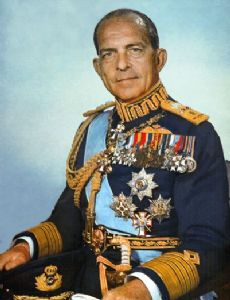
George II of Greece
George II of Greece was born in 1890 in Athens, Greece as the eldest son of King Constantine I and Queen Sophia. He was educated in Greece and in Germany. When he was only 27 years old, he became King of Greece after his father's abdication due to Greece's defeat during the World War I. However, his reign was not peaceful as there were many political and social upheavals in Greece during that time.
In 1923, he was forced to leave Greece due to a military coup and went into exile. He returned to Greece in 1935 and was restored to the throne by a plebiscite. He remained neutral during World War II, but Greece was occupied by Germany. He defended the rights of the Greek Jews and helped the resistance movement in his country.
After the war, he supported the restoration of democracy in Greece and accepted the new democratic constitution. However, he faced many challenges during the civil war in Greece in the late 1940s, and he died suddenly in 1947 at the age of 56. He was succeeded by his brother, Paul, as the King of Greece.
